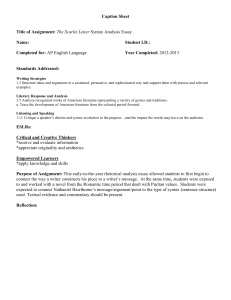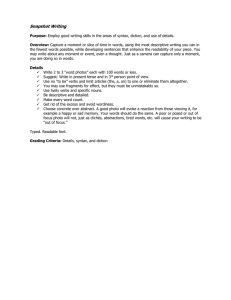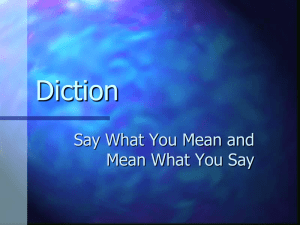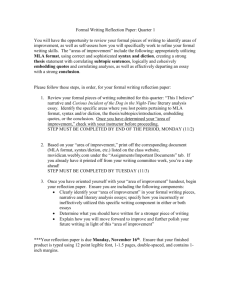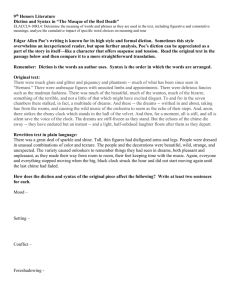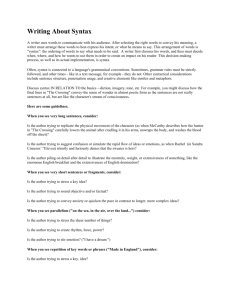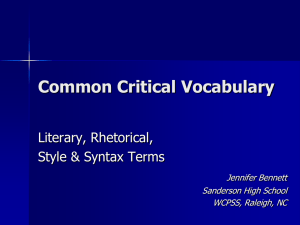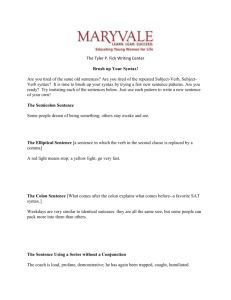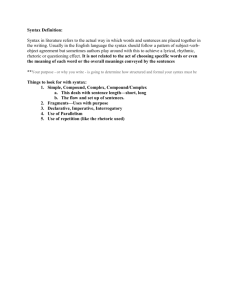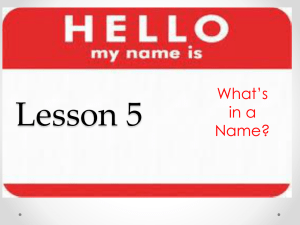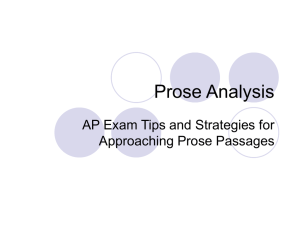AP English: - English with Ms. Owen
advertisement
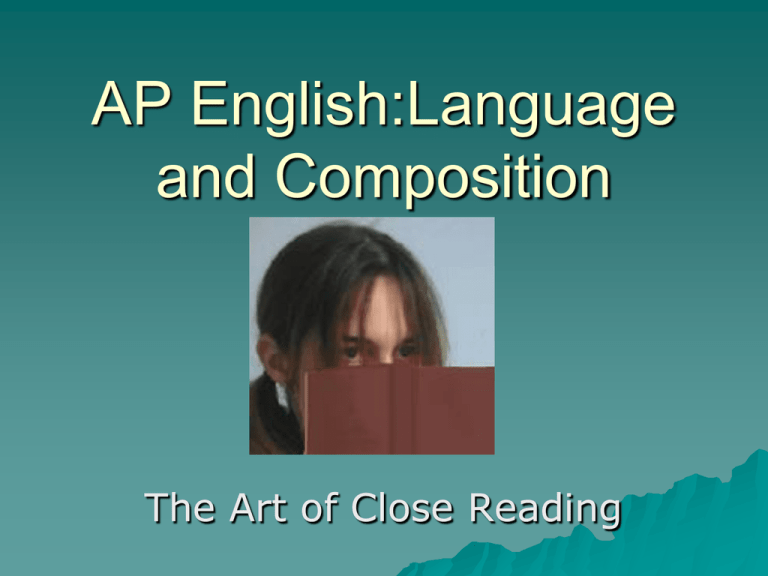
AP English:Language and Composition The Art of Close Reading Close Reading Finding text. Goes the “nutritional value” in the beyond understanding the surface meaning of a text and moves toward a true analysis of its parts and layers. Analyzing Style Through an effective “close reading” of a text, you discover the small details and how they affect the text’s larger meaning. Tone (or tone of voice) Diction Syntax Tropes Schemes – ALL OF THESE DETERMINE THE STYLE OF A PIECE. It’s all about the words. . . Good writing ultimately boils down to how well a writer controls the words on the page. Good writing doesn’t have to be fancy, formal, or complex; it just has to be precise. The Importance of Diction Diction: narrowly defined as a speaker’s (or author’s) word choice. The term may also refer to the general character of language used in speech or in a work of literature. In this broader sense, diction is typically divided into two components: vocabulary and syntax. Increase Your Vocabulary Daily The greater command that you have of vocabulary, the more effective you will be both as a writer and a reader. Vocabulary: the conscious choice of words in relation to the degree of difficulty, complexity, abstractness, formality and connotation of words used. Show don’t Tell Abstract "Telling" “Even a large male gorilla, unaccustomed to tourists, is frightened by people.” Concrete "Showing" "A four-hundred-pound male gorilla, unaccustomed to tourists, will bolt into the forest, trailing a stream of diarrhea, at the mere sight of a person." Choosing the Right Word "Good writing starts with a profound respect for words--their denotations, their connotations, their force, their rhythm. Once you learn to respect them, you'll develop a passion for using them thriftily. "A skilled writer writes as if she were paid a dime for each word she deletes. Her prose is concise." (John R. Trimble, Writing With Style: Conversations on the Art of Writing, 2nd ed. Prentice Hall, 2000) Syntax is the Shizzle Syntax: refers to the arrangement – the ordering, grouping, and placement – of words within a phrase, clause or sentence. The term may also be extended to encompass such things as the degree of complexity versus simplicity or fragmentation versus completeness manifested in a given arrangement of words. Identify the Effect of Syntax Short, choppy or even fragmented sentences are often used to signal an important point, a shift in direction, or to isolate a particular detail. Formal and informal syntax each have their own place in emphasizing an author’s purpose, and you must get in the habit of looking at syntax.
